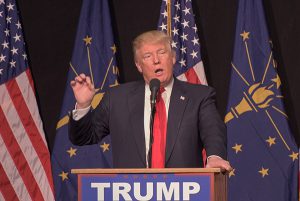
Trump says Americans could feel ‘some pain’ from tariffs as he threatens more import taxes
President Trump on Sunday night returned from Florida and threatened to impose steeper tariffs elsewhere, telling reporters that the import taxes will “definitely happen” with the European Union and possibly with the United Kingdom as well.

















